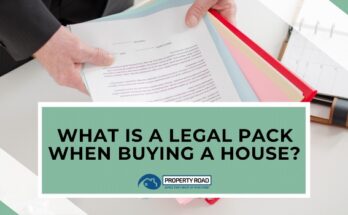If you are a landlord struggling to keep accurate financial records, you will be interested in these tips about bookkeeping for landlords
Whether you have just one property or several, it’s important that you keep accurate records for your business – and for your own personal tax reasons, too.
Firstly, it is good business practice to keep separate records for each property, particularly for those who have larger portfolios. This means that by doing so, you will:
- Be ready should HMRC ask any questions about a property you own
- Help reduce your accountancy and tax advice fees
- Calculate more easily any capital gains tax
Ultimately, having accurate, up-to-date bookkeeping records means that as a landlord you will have a better understanding of your income as well as your business overheads and potential profits.
This will be very important if you set up a limited company to run your letting business and the Companies House website has more information to help landlords.
The basics of bookkeeping for rental properties
While you could use a financial recording book or a spreadsheet to keep track of your incomings and outgoings, we will take a closer look at the best bookkeeping software for landlords available in the UK.

However, your bookkeeping for a rental property should include:
- Your rental income
- Any overheads including rates, ground rent, insurance, and utilities
- How much you spend on maintenance or property repairs
- Your buy to let mortgage and loan interest
- Any professional or legal fees
- The cost of regulatory checks such as the Gas Safety check
- Any allowable expenses
- Any improvement costs and capital expenses
There will also be other costs, and you may not be sure as to what you should do with them. You could keep a separate column and check these outgoings with your accountant to ensure you remain within the law.
Best Accounting Software For Landlords – Our Picks
| Software | Features | Value For Money | Made For | Official Site |
|---|---|---|---|---|
 | Outstanding | Outstanding | Landlords | Visit Website |
 | Excellent | Excellent | Sole Traders & Small Businesses | Visit Website |
 | Excellent | Good | Sole Traders & Small Businesses | Visit Website |
While landlords could use a financial record book or create a spreadsheet in Excel, there will be some wanting to know which is the best accounting software for landlords and put them to use.
Fortunately, there are various software packages available and while some of these are free, it’s also worth considering the paid-for offerings, particularly since you can claim these against your tax bill. Also, the ones that cost also tend to be more professional and easier to use.
Of the premium offerings when it comes to landlord management software, we recommend:
Landlord Vision: this is a cheap offering and one of the best and most popular bookkeeping for landlords software packages. Landlords can access their account from any device with reports showing their rental income, cash flow, expenses, and tax bills. There are also tutorials and videos to help explain how everything works.
And let’s not forget there are some excellent bookkeeping packages available in the shape of Quickbooks and FreeAgent. While they aren’t dedicated to landlord use, they are designed to be easily used by small businesses to meet their tax and regulatory requirements.

However, it may help to know that Property Road has tested Landlord Vision and found it met every need for the best price.
Don’t forget also that some professional landlord organisations will also offer access to programs for free for landlords with up to three properties on their books.
Tracking your rental income
One of the important issues for bookkeeping for landlords is to keep track of their rental income, for various reasons.
That’s because when you let property, you are in business and there will be tax obligations to meet.
Also, by keeping track of your tenant’s rental income, you will be on the path to investment success. You also need to know what your expenses and outgoings are when compared to your rental income.
Your expenses will include things like your mortgage, tax and insurance costs.
It helps that there are free offerings available too – and Landlord Vision has a rental income and expense tracker that some landlords may find helpful. The free to download spreadsheet will calculate your cashflow and profitability.
Also, you will need to keep accurate financial records for your self-assessment – HMRC offers some good tax advice for landlords.
All landlords need to appreciate that they must declare all of their rental income to HMRC to avoid being chased to pay the tax they owe – plus a penalty charge.
HMRC has a lot of tools available to track down landlords who may not be declaring their income – not least a tip-offs system to catch those dodging tax bills.
But how will HMRC find out about my rental income? They can request information from third parties, such as letting agents, and they will check the Electoral Roll and Land Registry.
If you have been lax in your record-keeping as a landlord and want to utilise a good bookkeeping for landlords software package before contacting HMRC, it might help to understand their Let Property Campaign. This is a way to declare your rental income and pay a minimum fine or no fine at all.
Tracking rental property expenses

As with tracking rental income, a landlord will also need to track their rental property expenses.
The main purpose for doing this is to reduce your tax bill and legitimately claim for items that are allowable. These include:
- Your letting agent fees
- Landlord insurance
- The cost of your landlord bookkeeping software
- Council tax, electricity, gas and water bills
- The cost of any services, including cleaners that may be part of a rental agreement
Since it’s a business, landlords really should keep on top of their paperwork to ensure that everything is up-to-date and no expenses are being missed.
Along with the costs a landlord incurs from their rental property, there are also expenses they can claim as a business, including:
- Accountancy fees
- Any direct expenses such as phone calls and advertising for tenants
The important issue is that any expense incurred should be exclusively and wholly as a result of a landlord renting a property.
With a good bookkeeping software package, landlords can do this easily so their financial records are not only kept up to date but are easy to access for their accountant to file a tax bill.
A professional accountant will also be able to spot whether there are any expenses going unclaimed and whether you’ve made a mistake in the ones you are claiming for.
Rental profit/loss statement

Ultimately, the main aim for every landlord with a rental property is to make a profit, which is why their rental profit/loss statement is crucial. Without this, how do you know whether your investment is generating the returns you are expecting or is even making a loss?
Indeed, it’s important that landlords understand that having a rental property is a business. You will be generating an income, and you’ll need to pay tax on that income.
That’s even if you use a letting agent to run your property because your income as a business will need to be declared.
So, along with recording your rental income, you also need to record your expenses to determine whether your business is making a profit or a loss.
This is the document that will reveal whether you need to make adjustments to your business model – putting the rent up or looking at the expenses or overheads, for example – to get your business back on track.
Why ALL landlords should use bookkeeping software
The last point about running your business at a profit is the main reason why all landlords really should use bookkeeping software to keep on top of their financial tasks.
So, you could use:
- A quality financial record book
- A simple Excel spreadsheet
- Or software that will do most of the hard work for you
The bottom line is that letting a property is about the numbers: you need to track income and expenditure, you need to know whether you’re wasting your time and whether your investment is actually making any money.
However, the advantage of bookkeeping software for landlords is that you can hold basic information about the property as well as the tenant. These programs are particularly useful for portfolio landlords.
At the push of a button, you will be able to see all the income and expenses professionally without worrying whether you have missed or forgotten to write down an important bill or whether the rules on claiming a particular expense have changed.
Put simply, quality bookkeeping software for landlords is about measuring your success and doing so in a professional way so your accountant and more importantly, HMRC, can easily see that all is in order.




